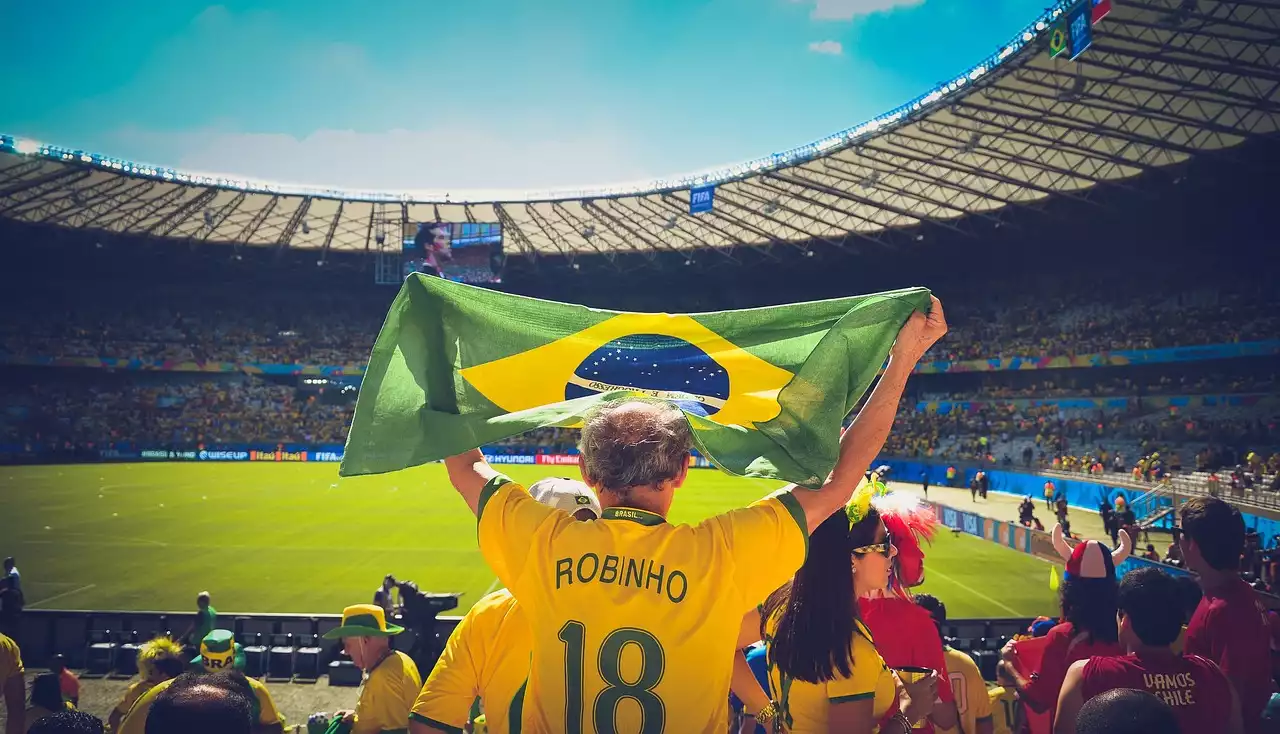History of Olympic Football: From its inception to present day
Olympic football has a rich history that stretches back to the very first modern Olympic Games in Athens in 1896. The sport has since become a staple of the Olympics, with both men's and women's tournaments taking place every four years.
Initially, only amateur players were allowed to compete in Olympic football, reflecting the ethos of the Games at the time. However, this amateur rule was gradually relaxed, and today's Olympic teams consist of a mix of amateur and professional players, with age restrictions in place.
The significance of representing one's country in Olympic football
For athletes, representing their country in Olympic football is an immense honor. It is an opportunity to showcase their skills on a global stage and to compete alongside the best players in the world. The sense of national pride that comes with wearing their country's colors is unparalleled.
Olympic football allows players to connect with their roots and embrace their national identity. They become ambassadors for their country, embodying the hopes and dreams of their fellow citizens. The weight of responsibility that comes with this role often brings out the best in players, as they strive to make their nation proud.
Cultural impact: How Olympic football unites a nation
One of the most powerful aspects of Olympic football is its ability to unite a nation. The tournament brings people from different walks of life together, transcending social, cultural, and economic barriers. It provides a shared experience that fosters a sense of belonging and strengthens national identity.
Teams bring their distinctive playing styles and strategies to the game, showcasing the unique football cultures that have evolved within each nation. From the samba style of Brazil to the tiki-taka passing of Spain, these playing styles captivate spectators and reinforce a sense of national identity.
Economic impact: Boosting national pride and tourism
The impact of Olympic football goes beyond the realm of sports. It has significant economic implications for the host nation. The tournament attracts millions of fans from around the world, boosting tourism and generating revenue for local businesses.
The influx of visitors during the Olympics creates a vibrant atmosphere in the host city, with fans from different nations coming together to celebrate their shared love for football. This not only boosts the local economy but also enhances the global perception of the host nation, showcasing its ability to organize and host a successful international event.
Success stories: Memorable Olympic football moments that ignited national identity
Over the years, Olympic football has witnessed numerous moments that have ignited national identity and left an indelible mark on the sport. These moments capture the essence of what it means to represent one's country and have become an integral part of national sporting folklore.
One such moment is the victory of the Cameroon national team in the 2000 Olympics. Against all odds, they defeated some of the world's football powerhouses to win gold. This triumph not only showcased the talent and resilience of the Cameroonian players but also united the nation in celebration.
Challenges and controversies: Balancing national pride with fair play
While Olympic football is a celebration of national identity, it is not without its challenges and controversies. Balancing national pride with fair play can be a delicate task. The desire to win for one's country can sometimes lead to unsportsmanlike behavior and heated rivalries on and off the pitch.
Instances of doping, match-fixing, and biased refereeing have marred the reputation of Olympic football in the past. However, stringent measures and regulations are in place to ensure fair and clean competition, protecting the integrity of the sport and upholding the values of the Olympics.
The role of fans: Their passionate support and contribution to national identity
The passion and support of fans play a crucial role in igniting and sustaining a sense of national identity in Olympic football. They create an electrifying atmosphere in stadiums, chanting and singing in unison to rally behind their team. The sea of flags, face paint, and national emblems exemplify the deep connection fans have with their nation.
Fans often travel great distances to support their team, turning stadiums into a melting pot of cultures and nationalities. This blending of diverse identities further enhances the sense of unity and pride that Olympic football fosters.
Beyond the games: Sustaining national identity after the Olympics
While the Olympics may be a temporary event, the impact of Olympic football on national identity can have lasting effects. The success and pride generated during the tournament can inspire future generations to pursue football and represent their country at the highest level.
National football associations can capitalize on the momentum generated by Olympic football to invest in grassroots development programs, nurturing young talent and promoting the sport at a local level. This ensures that the sense of national identity cultivated during the Olympics extends beyond the games themselves.
Olympic football as a catalyst for national unity and pride
Olympic football serves as a powerful catalyst for igniting and sustaining a sense of national identity. It brings together nations from all corners of the globe, allowing them to celebrate their cultural heritage and showcase their distinctive playing styles. Representing one's country in Olympic football is a great honor and a chance to inspire national pride.
The economic impact of Olympic football cannot be overlooked, as it boosts tourism and showcases the host nation's capabilities. Memorable moments in Olympic football have united nations and become part of their sporting folklore. However, challenges and controversies exist, highlighting the need to balance national pride with fair play.
Ultimately, it is the passionate support of fans and the sustained efforts of national football associations that contribute to the long-term impact of Olympic football on national identity. By embracing the values of fair play, unity, and pride, Olympic football has the power to transcend borders and create a sense of belonging that extends far beyond the beautiful game.










